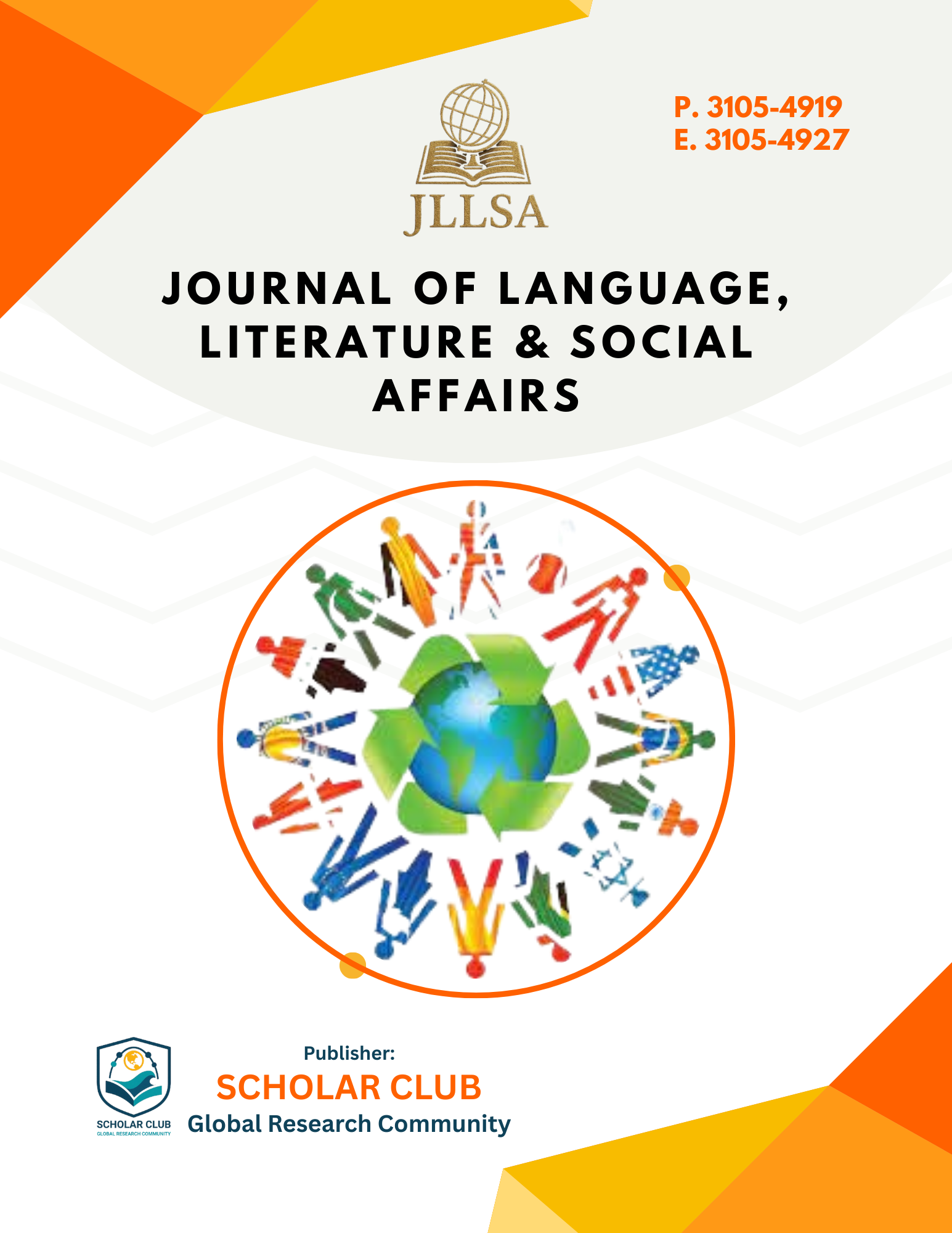Unraveling the Conflict of Mind and Heart in Literature: A Thematic Study of The Tell Tale Heart by Edgar Allan Poe
DOI:
https://doi.org/10.63056/jllsa.1.4.2025.76Keywords:
contradictions, emotion, rationality, qualitative method, narrative theoryAbstract
The issue of conflict between rationality and emotion is an exploration of thematic strains in the short story The Tell-Tale Heart by Edgar Allan Poe. The study looks into the methods Poe adopts in building an inner conflict in the narrator between his sensor and the force of an intense inner reassurance through a development of a literary analysis of Edgar Allan Poe and his ideas. The aim of the study is to investigate the depiction of rationality, the analysis of emotional superiority to reason, and the evaluation of the way Poe combines the two to produce psychological horror. The method used for this research is qualitative method as it deeply explains the phenomenon. Creswell (2013) has discussed that the text in qualitative research is perceived to find a pattern, category, and meaning-making. The findings shows that Poe employs the contradictions in the mind of the narrator to demonstrate the fragility of human psyche and to confuse consciousness and insanity. It also shows that Poe masters the art of intertwining the problem of mind and emotion of the narrator with the plot and language of the story.
Downloads
Published
How to Cite
Issue
Section
License
Copyright (c) 2025 Gul Aizaz

This work is licensed under a Creative Commons Attribution 4.0 International License.







